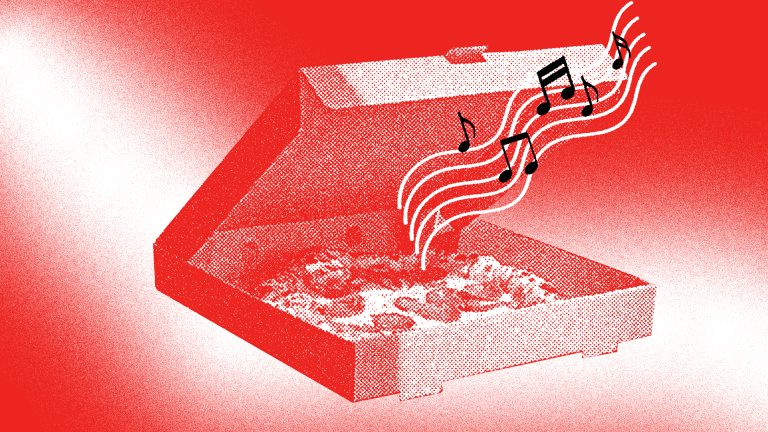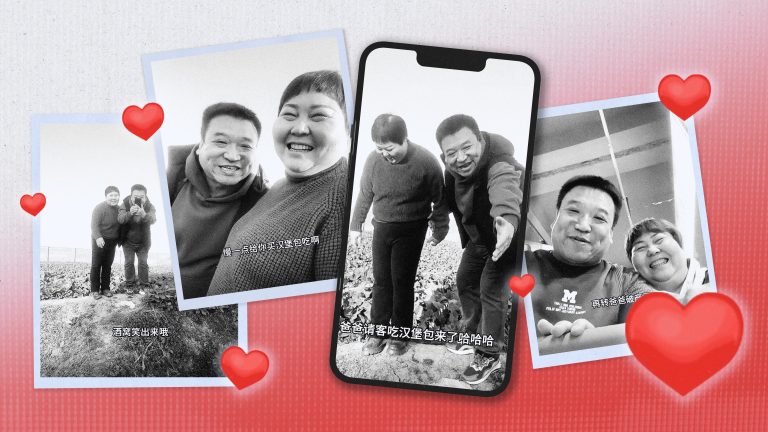In early October, J Frank AA., a Venezuelan delivery worker in Lima, Peru, posted a TikTok video of himself riding his bicycle. A song called “Soy Rappi” plays in the background, its lyrics hinting at what the beginning of a delivery worker’s day looks like:
[1]
I wake up in the morningAnd I start doing deliveries
I turn the GPS on, I’m going your way
Very happy people tell me “Thank you, son”
Send a tip because this is how I make a living
Frank is one of the many delivery workers in Spanish-speaking Latin America who’ve used songs like “Soy Rappi” as the soundtrack for the videos of their everyday life on social media. For these workers, the songs speak to their struggles with angry customers, long wait lines to pick up the food, traffic jams, and technical difficulties. For others, the songs are just compelling stories that tap into a broader sense of frustration. But for both, the new microgenre is recognition that delivery gig work has become a vital part of culture.
Recorded in 2020 by Venezuelan delivery worker and budding rapper Julio Barrera, whose artist name at the time was El RT, “Soy Rappi” is one of the earliest examples of the microgenre. Barrera credits the popularity of his song to delivery workers like Frank who share their daily experiences online.
“There’s always plenty of delivery workers entering and leaving Rappi, so the song goes viral every once in a while,” the 27-year-old Barrera, who lives in Medellín, Colombia, told Rest of World. “I think this song will be an anthem for rappitenderos [Rappi delivery workers] for ages to come.”
The same year as Barrera’s hit, the popular YouTube channel KondZilla released a single called “Motoboy” (the Brazilian Portuguese word for delivery workers on motorbikes). The song’s lyrics narrate the story of a delivery worker being stopped for driving with an expired license.
[2]
Oh Lord what can I do if the document is not up to date
I’m a Black poor guy from a favela
At 11am I’m delivering meals
At 7 p.m. I clock in at the pizza place
and the fridge at home is empty
Either I pay the delayed document or I take food home to my family
The clip has more than 7.4 million views, with comments below from delivery workers speaking to the song’s resonance.
In April, Maicon Küster, a YouTuber and comedian based in the south of Brazil, released “Entregador do iFood” [iFood delivery worker], a rap in which he narrates the difficulties faced by a delivery worker.
[3]
You have to be very dumb to think I’m late on purpose
The more the order is delayed, the more money I’ll be losing
And now to remember and stop being ignorant
I only deliver your meal, the delay is on the restaurant
If the food is cold, why complain to me?
My job is to drive the motorbike, not to ice your soda
Even though Küster isn’t a delivery worker himself, the song has over half a million views. “I’m a motoboy, like 70% of Maicon’s audience, and I think all customers should watch this,” said one commenter.
Phellipe Carvalho, known as MC Phellps, took inspiration from his own experience to write the lyrics to “Vida de Motoboy,” a funk song he launched in August 2021. For two years, doing gig work on delivery apps was a complementary income to his day job as an administrative assistant at a club in an elite São Paulo neighborhood. In the song, Carvalho describes a delivery driver’s life as a desperate struggle.
[4]
In sunshine or rain, he’s battling
Annoying clients are always complaining
Five is the rate they are paying
They forget we’re also human beings
But in this life I can’t hurry
Because at home someone waits for me
The song was a hit — something Carvalho attributes to the universal experience of delivery work. “When there is a song you identify with, that has nice lyrics, everyone starts sharing, using the sound,” he told Rest of World.
IFood and Rappi, Brazil and Colombia’s largest last-mile delivery apps, have embraced the genre. In 2019, Rappi Brazil partnered with KondZilla in a heavily branded video clip of a funk song by MC Rodolfinho. In the song, Rappi is used as a metaphor for how quickly he’ll arrive when called by his lover.
Not all platforms are eager to support delivery workers on their musical endeavors. After Barrera’s hit “Soy Rappi” took off, Rappi banned him unexpectedly, stating it was due to the platform’s terms and conditions.
He now works for Chinese delivery app Didi Food, and is part of the team launching a new delivery app. “Although I didn’t receive any support from Rappi, I do have the support of the delivery workers,” he said.



